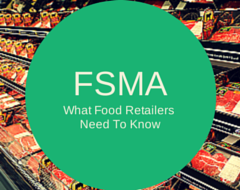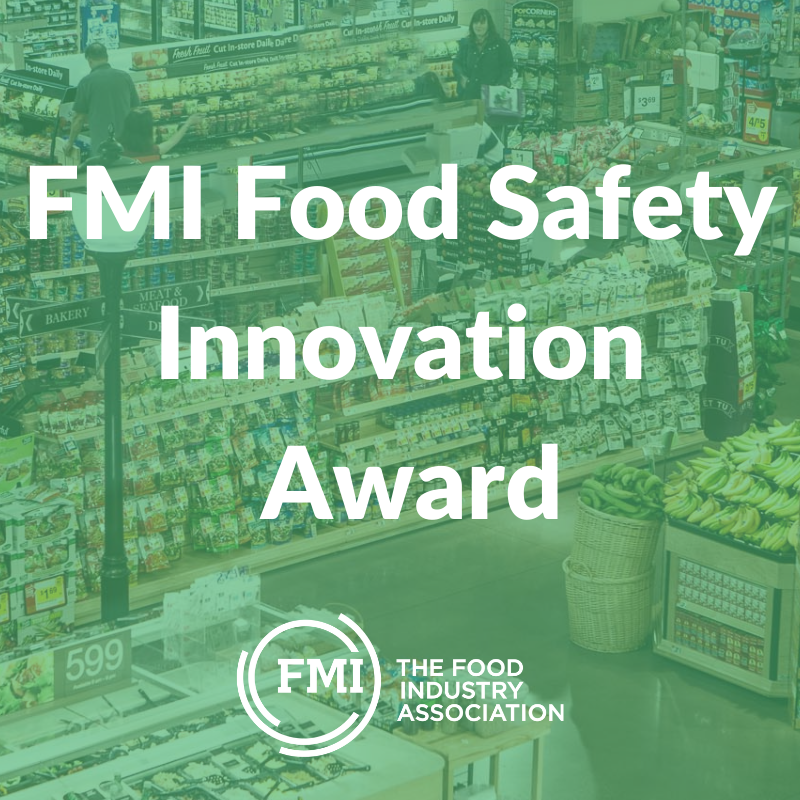By: Stephanie Barnes, Regulatory Counsel, Food Marketing Institute 
This post is part of a series on What Food Retailers Need To Know About The Food Safety Modernization Act.
The Food Safety Modernization Act (FSMA) includes changes related to sanitary transportation that will affect retailers and wholesalers with distribution centers; and retailers and wholesalers with distribution centers and truck fleets. The Food and Drug Administration’s (FDA) proposed rule would require those who transport food to use sanitary transportation practices in order to maintain the safety of both human and animal food during transportation. SFTA also imposes significant new recordkeeping requirements on self-distributing retailers and wholesalers.
Through SFTA, FSMA establishes criteria and definitions for determining whether a food is adulterated because it has been improperly transported or offered for transport by a shipper, motor vehicle, rail or receiver engaged in the transportation of food. Unlike many of the provisions in FSMA, SFTA does apply to animal food and USDA-regulated meat, poultry and egg products. This is the first time FDA has proposed comprehensive rules related to transportation so the proposed changes impose significant new requirements for food retailers. For example, FDA includes requirements related to the design and maintenance of vehicles and transportation equipment to ensure that it does not cause the food that it transports to become contaminated.
The proposed rule dictates that certain measures need to be taken during transportation to ensure food is not contaminated. To name a few, these include adequate temperature controls, separation of food from non-food items in the same load, cleaning of transportation equipment and requirements related to the training of carrier personnel. FMI submitted comments on the proposed rule asking FDA to reconsider many of the requirements in the rule to make it more practical and less burdensome for food retailers. We expect that a final rule will adopt some of these changes but wanted to highlight the key requirements in the proposed rule.
Who will have to comply?
Wholesalers and self-distributing retailers may fall within the definition of shipper, carrier and receiver under the regulation, which triggers various requirements and recordkeeping responsibilities. It’s important to evaluate your current supply chain to determine whether you would be considered the shipper, carrier or receiver and therefore required to comply with the new law.
Who is a shipper?
A shipper is “a person who initiates a shipment of food by motor or rail vehicle.” For example, a retailer would be considered a shipper if it arranges for a carrier to pick up a shipment of fresh produce at a holding facility for transport by truck to its distribution center. Shippers have an obligation to specify to carriers, in writing, all necessary sanitary requirements for the carrier’s vehicle and transportation equipment, including specific design requirements and cleaning procedures. For foods that require temperature control for safety (TCS) or must be temperature-controlled to prevent spoilage, shippers must communicate to carriers the conditions necessary for adequate control, including the pre-cooling phase of the container.
Who is a carrier?
For purposes of the SFTA rule, a carrier is a person who owns, leases, or is otherwise ultimately responsible for the use of a motor vehicle or rail vehicle to transport food. Carriers have an obligation, once a transportation operation is complete, to demonstrate to the shipper and if requested, to the receiver, that the carrier has maintained proper temperature conditions for the food transported. This can be done by any appropriate means agreeable to the shipper and carrier, including presenting printouts of a time/temperature recording device or a log of temperature measures taken at various times during shipment.
Who is a receiver?
A receiver is defined under the rule as any person who receives food after transportation, whether or not that person represents the final point of receipt for the food. Shippers and receivers must provide vehicle operators who are expected to handle unpackaged food with hand washing facilities.
Who’s exempt?
The typical retail store will not be considered a receiver for purposes of the rule and retail establishments that only engage in transportation operations in which food is relinquished to consumers will also be excluded. FDA has also included a few very important exemptions under the proposed rule, including transportation of fully packaged shelf stable food that is completely enclosed by a container. FMI strongly believes and has recommended that FDA exempt food retailers and wholesalers operating as the shipper, carrier and receiver from the requirements.
The highlights above are not comprehensive but should provide an overview of what FDA is proposing for new regulations related to the transportation of food. It important to closely review proposed changes and analyze your current transportation practices to understand how these new provisions apply to your company. A final rule is expected in March 2016 with compliance required by March 2017.
For additional information and resources, please visit FMI’s FSMA Resource webpage.


 Industry Topics address your specific area of expertise with resources, reports, events and more.
Industry Topics address your specific area of expertise with resources, reports, events and more.
 Our Research covers consumer behavior and retail operation benchmarks so you can make informed business decisions.
Our Research covers consumer behavior and retail operation benchmarks so you can make informed business decisions.
 Events and Education including online and in-person help you advance your food retail career.
Events and Education including online and in-person help you advance your food retail career.
 Food Safety training, resources and guidance that help you create a company food safety culture.
Food Safety training, resources and guidance that help you create a company food safety culture.
 Government Affairs work — federal and state — on the latest food industry policy, regulatory and legislative issues.
Government Affairs work — federal and state — on the latest food industry policy, regulatory and legislative issues.
 Get Involved. From industry awards to newsletters and committees, these resources help you take advantage of your membership.
Get Involved. From industry awards to newsletters and committees, these resources help you take advantage of your membership.
 Best practices, guidance documents, infographics, signage and more for the food industry on the COVID-19 pandemic.
Best practices, guidance documents, infographics, signage and more for the food industry on the COVID-19 pandemic.
